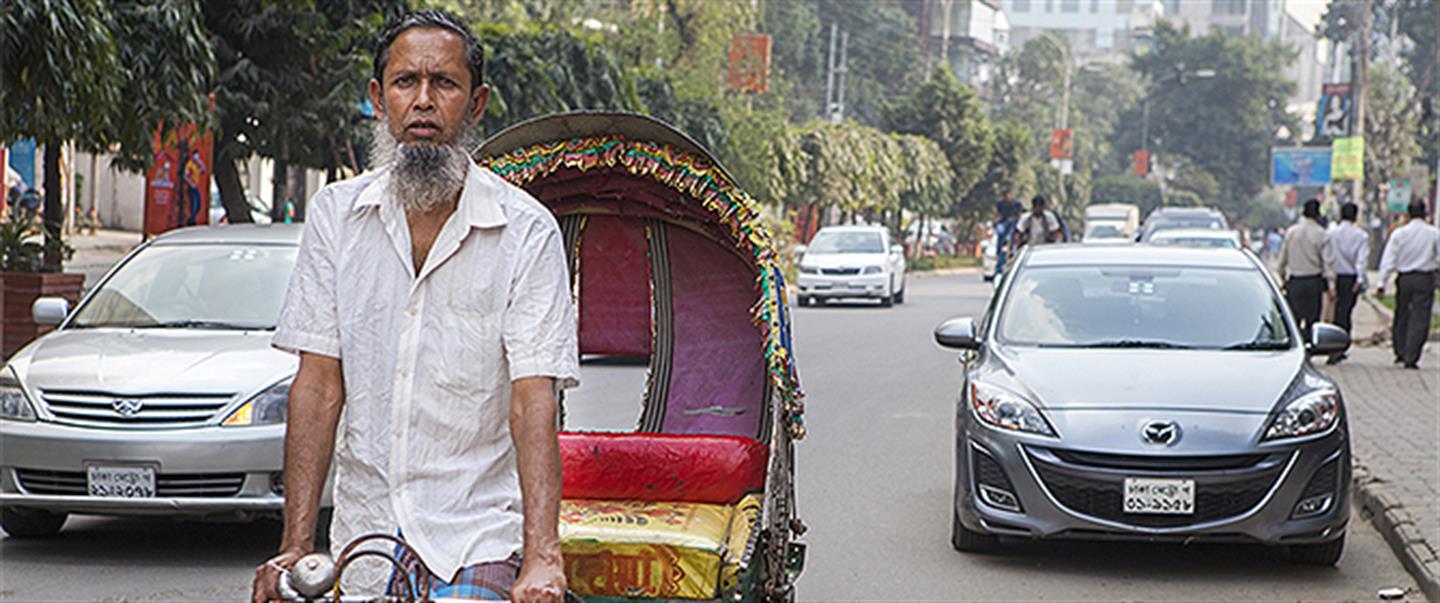
Ending the increasing inequality
This is 1 of the 3,000 rickshaw drivers in Dhaka, Bangladesh. He gets paid around 20 cents for each ride. The Oxfam Novib project Rich/Poor shows the growing gap between rich and poor people, and questions how their wealth affects their happiness.
The idea that economic growth automatically leads to more wealth for everybody is incorrect. A large portion of the world’s wealth is concentrated in a small group of extremely rich. Worldwide 80 people own as much wealth as half the world's population. Meanwhile, people at the bottom are unable to escape poverty and nearly a billion people can barely afford to feed their families. And inequality is rising: the combined wealth of the richest 1 per cent will overtake that of the other 99 per cent of people next year unless the current trend is revised.
Oxfam's vision is a world free from injustice and poverty. However, tackling inequality is absolutely necessary if we want to eliminate poverty. This stark inequality is the result of political and economic choices. Whilst the wealth of a powerful minority grows greater, the poorest people are left behind.
Extreme inequality robs millions of people of better life chances; fuels crime, corruption and violent conflict; widens the gap between women and men; damages nations' economic growth; and is one of the biggest barriers to ending global poverty. Oxfam is taking a stand against inequality with our massive 'Even it up' campaign. And people from all walks of life around the globe are backing our call for a fairer world, including leading economists, academics, politicians and activists.
Read more about our work on governance and financial flows.




